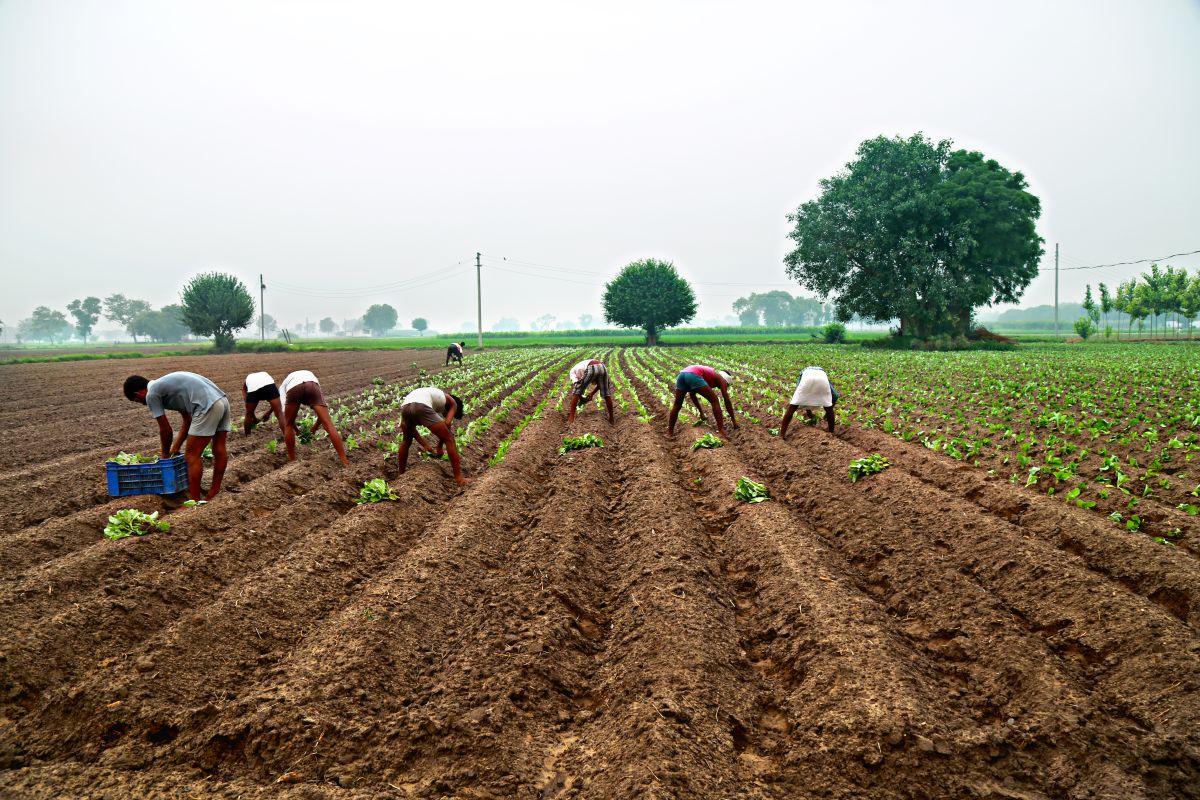Experts from the UK and India have concluded that harnessing smartphone technology which could help Indian farmers not only make better business decisions but also tackle the sustainable cooling challenges being faced by the country.
The University of Birmingham, working with the Shakti Sustainable Energy Foundation and MP Systems to uncover the cooling needs of farmers in the states of Haryana, Punjab, Maharashtra and Karnataka, launched a new report on Thursday to highlight the potential of smart tech.
Advertisement
The ‘Promoting Clean and Energy Efficient Cold-Chains in India’ report finds that using mobile apps and data analysis to manage harvesting and logistics could help to reduce the amount of food wasted between farm gate and supermarket shelf, whilst boosting farmers’ incomes and reducing the environmental impact of much-needed food cooling.
The recommendation is part of a four-point “roadmap” developed by the experts, which includes promoting new business models that involves the communities taking charge of their own cooling needs; establishing “Living Labs” in rural communities where new technology can be tested among many other things.
Toby Peters, Professor in Clean Cold Economy at the University of Birmingham, said: “We’re proposing a radical new approach to cooling provision with recommendations combined with the government of India action to address needs from the first to last mile of the cold-chain as well as those of the broader rural community.
“We must build capacity whilst demonstrating the efficiency of new technology that people will be able to use easily and affordable. For example, with increased penetration of mobile-based apps and technologies in rural areas, there is potential for an information-based system to help make informed marketing decisions and boost farmers’ incomes.”
Effective refrigeration is essential to preserve food and medicine. It underpins industries and economic growth, while air conditioning is key to sustainable urbanisation and human productivity and makes much of the world bearable – or even safe – to live in.
The problems in India are acute, where up to 50 per cent of food is lost post-harvest because of lack of cold chain. The new report highlights that only 4 per cent of products that would benefit from a cold-chain actually does so, compared with around 70 per cent in a country like the UK.
Pawanexh Kohli, CEO, National Centre for Cold-chain Development and Visiting Professor at the University of Birmingham, noted: “Cold-chains enhance economic wealth, cash flow and security for farmers and improve food quality, safety and value to the customer, but they must achieve this with minimum environmental impact.
“While we can reduce the loss of food in the delivery chain through the use of technology, existing cold-chain is an energy-intensive application, often relying on diesel to provide off-grid and on-vehicle cooling this is not good for the planet.”
Krishan Dhawan, CEO, Shakti Sustainable Energy Foundation added: “Cold chains are expected to grow rapidly in the next couple of years. Under a Business-as-Usual scenario, most cold chains will run on diesel and adopt carbon intensive cooling and refrigeration technologies.
“The way forward is for India is a transition to cleaner and more efficient cold chains, in order to tackle climate change and to achieve wider socioeconomic benefits.”
The report was launched at the two-day Clean Cooling Congress, which opened in London on Wednesday, hosted by University of Birmingham with the World Bank Group and the UK Department of Business Energy & Industrial Strategy (BEIS) and Mission Innovation.
Mahesh Patankar of MP Systems and Senior Advisor with the Regulatory Assistance Project, said: “Cold-chain infrastructure and business models need to be grounded within the communities providing them with the solutions to enhance their lives while catering to a country’s nutritional requirements.
“Enhanced IoT and Blockchain techniques proposed by the research team are designed to bring substantial benefits to those who need it the most.”
The analysis notes that with populations and incomes growing, urbanisation continuing and climate change causing rising temperatures, the world will need to provide far more cooling.
Between now and 2050, it is estimated that 19 pieces of cooling equipment (such as room-size AC units, refrigerators and industrial size chillers) will be deployed every second. Despite this massive increase in cooling provision, access to cooling for all people that need it will still not be a reality, and the poorest in many hot countries will feel the impact.









